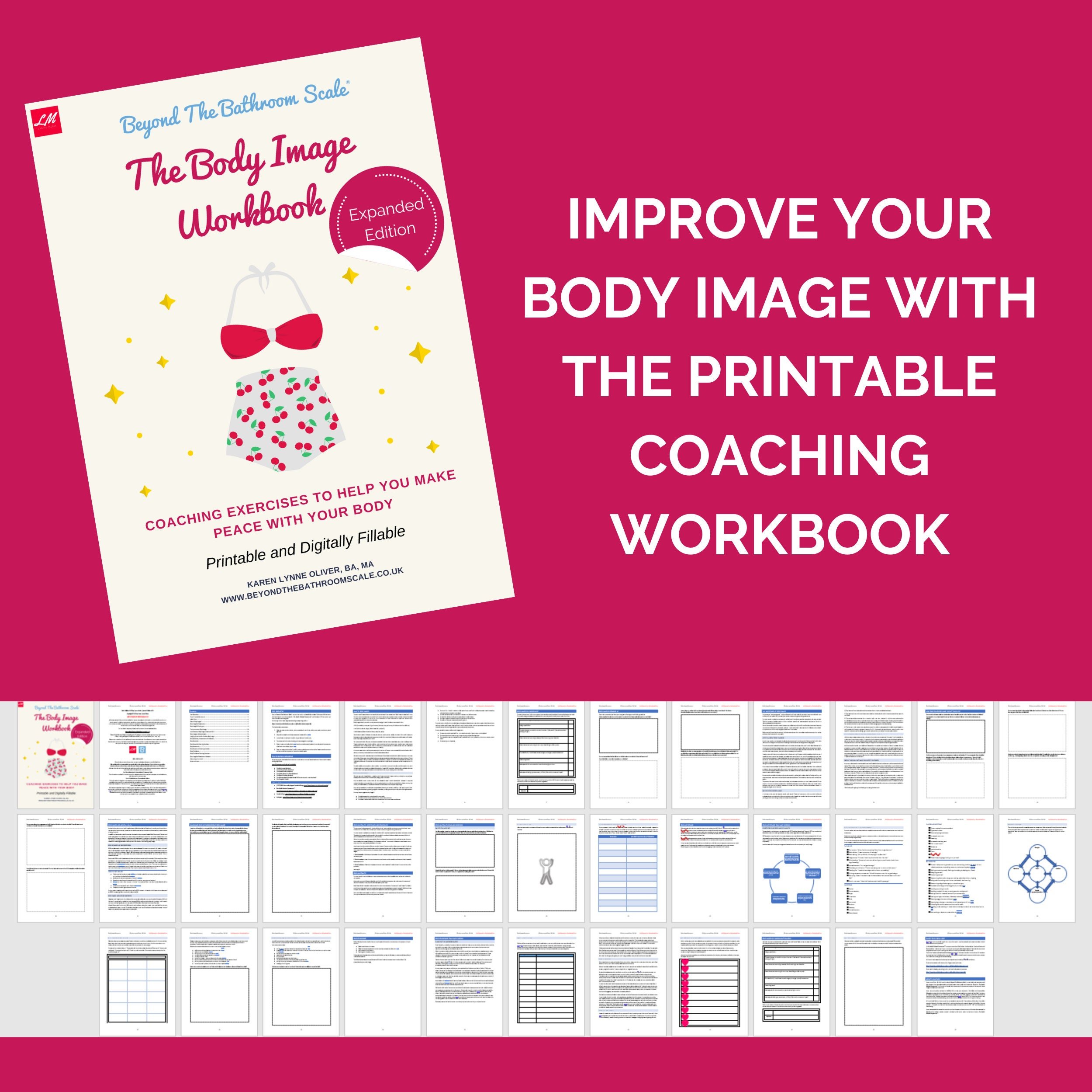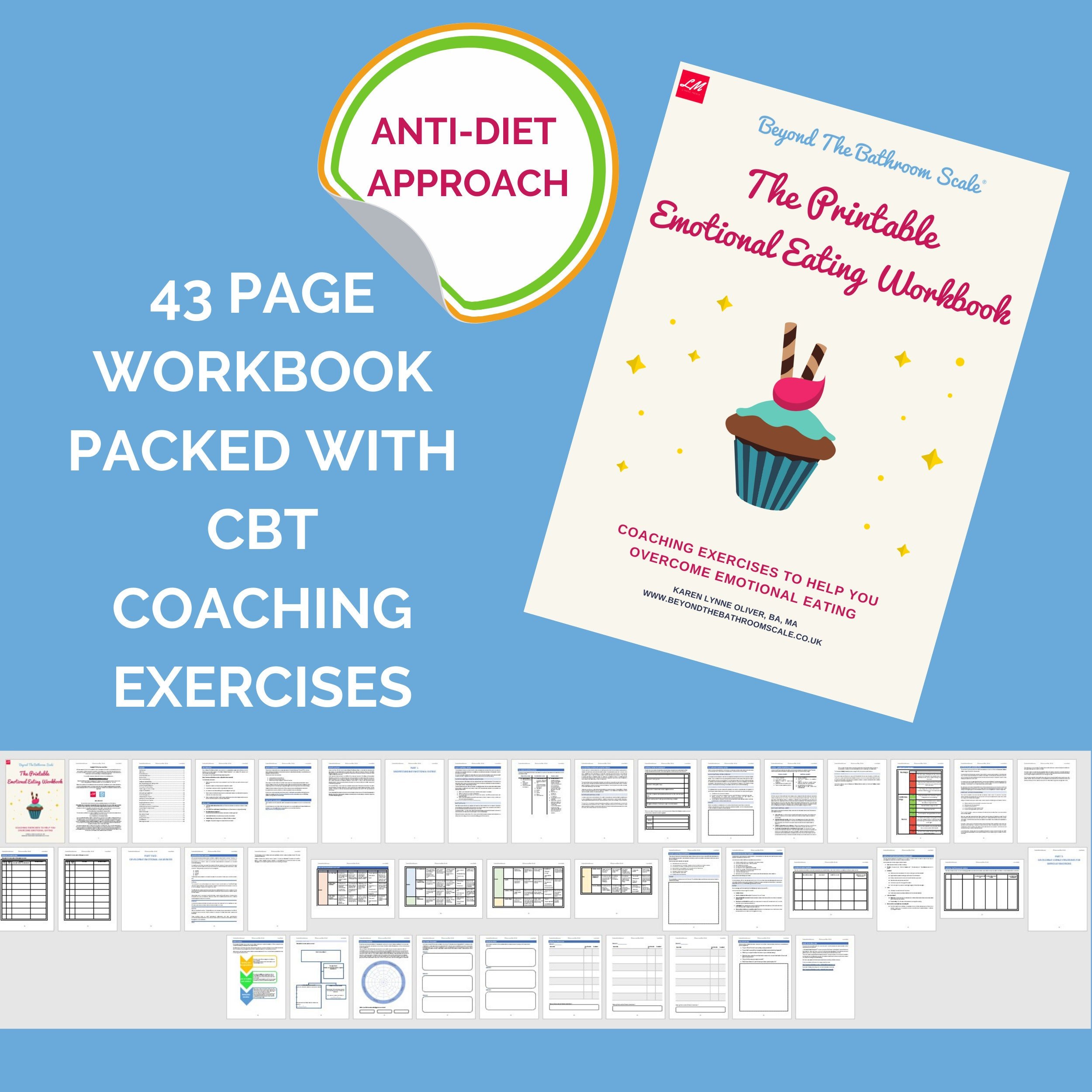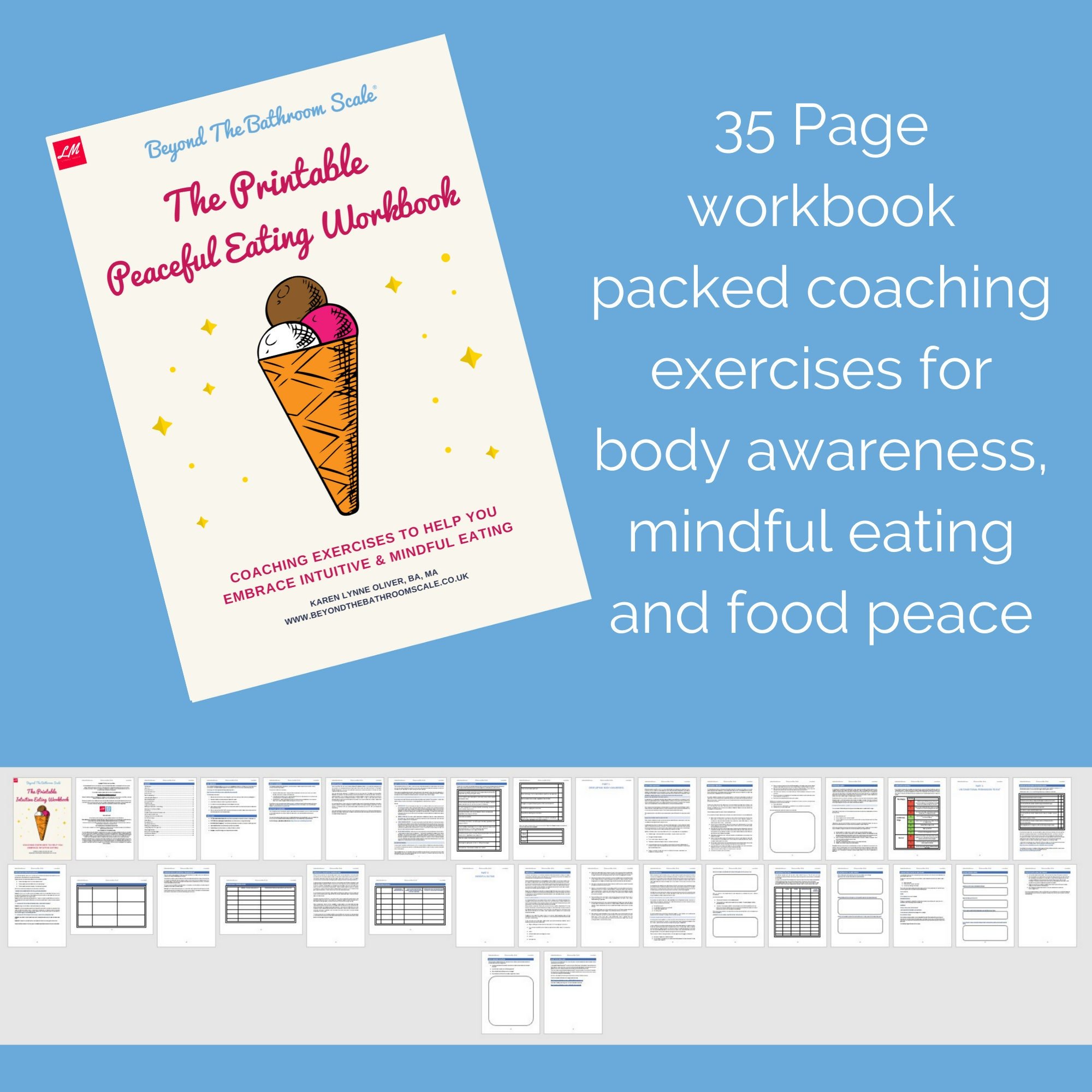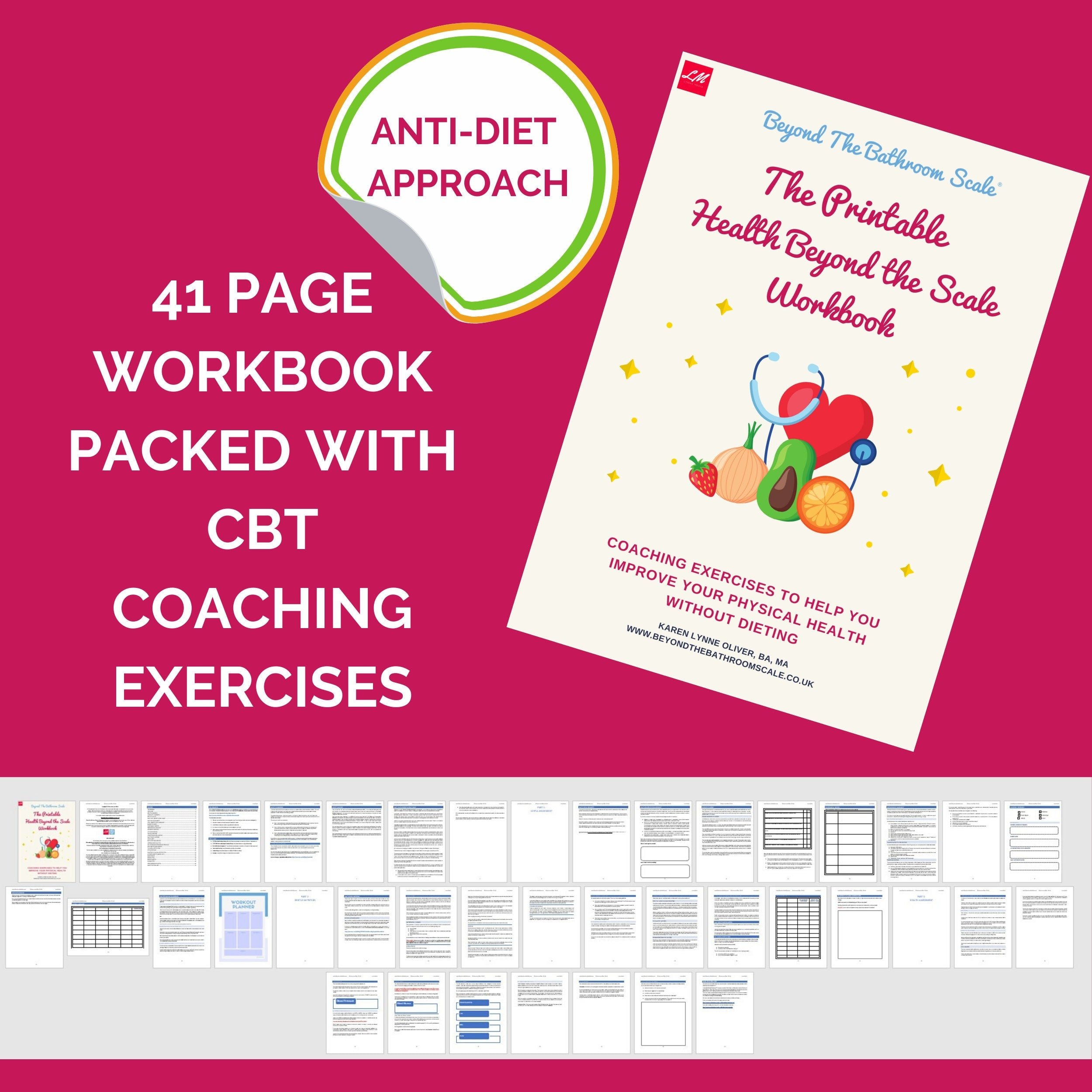6 Steps to Ditching Diets Forever: Make Peace With Food, Exercise & Your Body
Dieting, including calorie restriction, does not work. Full Stop. There's now loads of published research, podcasts and books authored by registered dietitians on the topic of why diets do not work and actually backfire, resulting in weight gain, poorer physical and mental health, stunted metabolism and there's even research to show that dieting and diet culture is a precursor for full-blown eating disorders.
It's exactly the type of damning research the dieting and fitness industries would rather you didn't read because if you knew the truth, you wouldn't be buying any of their crap or signing up to yet another slimming group or diet plan.
In the meantime, here is an outline of the steps you need to take to ditch diets forever and finally make peace with food and your body.
Step 1: Rebel against diet culture and ditch the diet mentality
Just in case there's still a part of you that thinks there's a 'perfect' diet plan or regime around the corner for you to follow, it's time to quash them thoughts right at the beginning of your recovery journey. The aim of this step is to learn as much as you can about how the fitness and dieting industries work, and why diets don't work. By the end of your research, you'll feel angry. This anger is a good thing, as we'll use it as fuel to kick-start your recovery from a lifetime of dieting and hating your body.
Action points:
Read up on the growing body of anti-diet research put together by doctors, dietitians and biologists (here are some recommended books and podcasts to start with)
Look at the media you consume: Does it make you feel bad about yourself? do you compare your body to the bodies you see in magazines an on TV?
Ditch the tools of dieting. Do you calorie count or track macros, points or syns? Do you log your exercise and food? Delete the apps and chuck out the diet books and meal plans.
Take a look at your dieting history - if any of your past diets had really 'worked', you wouldn't be looking for another diet or starting over. (Remember: you haven't failed at dieting, dieting has failed you!)
Vow to stop dieting right now, and do not restrict food intake or types.
Step 2: Begin with body acceptance & embrace self-compassion
You don't have to 'love' your body, at least not at the beginning of your recovery journey. But you do need to reach a point of accepting your body, in order to finally make peace with food. Without body acceptance and self-compassion, you'll never be able to break away the diet mentality and will never truly put your health above weight loss.
Action points:
FREE DOWNLOAD: Click the image to get your resources guide as part of my free 6 day course.
Swap out all media (including social media) which promotes diet culture and the thin ideal, and instead surround yourself with Body Positivity Community. Here’s a list of books about intuitive eating and body acceptance, which I highly recommend.
Throw out any clothes which are too tight for you, embrace the body you have today.
Throw out any clothes which are too loose and baggy - you don't need to hide away, you are worthy of being visible.
Spend time with people who make you feel happy and good about yourself
Limit time spent with anyone who makes you feel bad about yourself
Make time for self-care and relaxing
Seek therapy if and when needed
Speak to yourself in the same way you would a trusted friend.
Step 3: Become body aware & mindful
Once you've tuned out from diet culture and ditched external cues like food trackers and jean sizes, it's time to listen to what your body is trying to tell you it needs most. Often long-term dieters feel out of touch with their bodies and lose the ability to identify true hunger and feelings of fullness. It's also common to confuse emotional cues for physical cues which results in emotional eating. We'll cover emotional eating and how to eat intuitively in the next two steps, but first I want you to get used to listening to our mind and body.
Action points:
Keep a journal of your thoughts, dreams and feelings.
Go to bed or take a nap when you feel tired (and yes, I know how tempting it is to stay up watching Netflix!).
Keep a gratitude journal
Start practising meditation for 10 minutes a day either first thing in the morning or just before bed
Step 4: Recognise emotional eating and put in place self-care strategies
Often, emotional eating is viewed as an eating problem, when in fact it's a sign that self-care and mental well-being needs to be prioritised. It's very hard (if not impossible) to focus on physical health without first addressing mental health.
Action Points:
Before you eat, stop and ask yourself: do I feel this hunger physically? Or am I eating because of how I'm feeling? Am I sad/tired/lonely/bored/frustrated?
Keep a mood log throughout the day
Learn to label your thoughts and emotions - a meditation technique called 'noting' can help you do this.
Write down any insights you have after meditating.
Read self-help books or seek out a therapist to help you work through the issues that emerge for you (i.e. past trauma, anxiety, depression).
Write a list of activities that make you feel better (walks in the park, watching a funny film, calling a friend, pampering yourself in the bath) and pick an activity to help perk you up.
Step 5: Learn how to eat intuitively (recognise your body's cues for hunger and fullness)
On the surface, Intuitive Eating sounds simple: Eat when you're hungry and stop when you're full. But we know that's a lot harder to put in place than it sounds. The work you've been doing so far will have put in place a good foundation to build on: you're no longer dieting, you're not focusing on weight loss or body shape and you're tuning into your mind and emotions. Now it's time to take that one step further.
Action points:
Use a hunger scale to learn about your hunger cues - this downloadable Hunger and Fullness Scale from Derbyshire Health Futures Service is great for this (I also highly recommend you read Tribole and Resch's book on Intuitive Eating.
Give yourself unconditional permission to eat whenever you feel hungry.
Practice mindful eating: Put your fork down between mouthfuls to really take time to chew and savour the food. Think about the flavours, the textures and whether you like the food. You can also think about the food's origins - where has it come from, how has it been prepared?
Learn to recognise the sensation of feeling satisfied (again, the hunger/fullness scale can help with this)
Give yourself permission to leave food on your plate if you're feeling full. This can be a hard habit to break if you grew up in a household where you were told to always clear your plate and not waste food.
Step 6: Focus on improving your health instead the number you see on the bathroom scale
By this stage, you've ditched the dieting mentality and the focus on weight loss. You've also learned to listen to and trust your body to tell you exactly what it needs. This is the stage where you can begin to focus on your overall health. This includes taking a gentle approach to nutrition and finding joy movement.
Action Points:
Read around the topic of the Health At Every Size movement and the growing body of research
Assess your overall health without using the scale - look into having your blood work done, and simple metrics like blood pressure, blood cholesterol and blood glucose
Find a form of movement that you truly enjoy - remember: it doesn't need to burn loads of calories or be classed as a 'workout'. Try yoga, swimming, dance, gardening, rollerskating, walking, tennis or another team sport.
Learn more about nutrition from trusted resources (preferable registered dietitians who are aligned with the values of the Anti-diet and Health at Every Size Movements)
Think about how you feel after eating certain foods: energised? sluggish?
Review your motives for eating certain foods: are you eating them because you think you 'should' or think that it'll help you lose weight?
Always keep an eye out for diet mentality creeping its way back in.
Want more guidance?
We cover all of these topics in depth within the course library. The courses are self-paced and designed to be a safe, informative and healing environment to enable you to recover from a lifetime of dieting and disordered eating. It's time to make peace with food and your body and become healthy, confident and happy.







